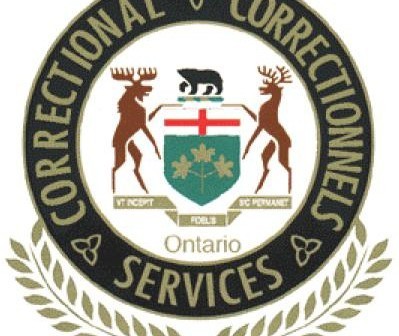Please support independent journalists in Northern Ontario. The Northern Hoot and its’ writers rely on one-time or recurring monthly donations of any amount to survive. You can make a donation by clicking here. Thank you.
Editor’s Note: Last week the Northern Hoot published The Other Side of the Bars: Sault Ste. Marie Correctional Officers on Workplace Trauma. At that time the Northern Hoot attempted to contact the Ministry of Community Safety and Correctional Services to provide an opportunity for the Ministry to reply to the concerns expressed by Correctional Officers who work at the Algoma Remand and Treatment Centre in Sault Ste. Marie. Though a request for a phone interview was not possible, Brent Ross- spokesperson for MCSCS, provided a written reply on December 18th to the questions posed by Steffanie Petroni in an email.
*The Management at the Algoma Treatment and Remand Centre is directed to refer questions from the media to MCSCS.
*****
- What type of accommodation is made for correctional officers returning to work after a leave triggered by a traumatic event? Do facilities have the resources to realistically and effectively satisfy requests for accommodation?
The Ministry seeks to promote an inclusive workplace in keeping with the Ontario Human Rights Code and develop a positive work environment where employees with disabilities can participate fully in all aspects of their jobs. The Ministry takes the health and well-being of staff very seriously and local Health & Safety committees are engaged on a regular basis in discussions about safety and risks in the workplace. Further, the Ministry offers Employee Assistance Program services which are available to all employees, in addition to attendance and wellness programs at all workplaces.
- One individual shared that after taking time off to deal with a hanging death where they were the first responder that when they returned to work colleagues and management were introducing jokes about hanging in the workplace. What type of training does the Ministry offer to those working in corrections around:a) Sensitivity training; b) Training regarding indicators of PTSD, depression, suicidal ideations etc.; and c) Peer to peer counselling in the workplace
All employees of Correctional Services have a professional responsibility to provide care and to ensure the well-being of those in our custody or serving a sentence in the community, and to maintain a respectful, safe and healthy work environment.
All Correctional Staff and Managers receive training every two years that underlines effective approaches for those involved after an incident, such as the importance of meaningful discussion, caring for one another and sensitivity.
Employees are also supported through the Critical Incident Stress Management (CISM). The CISM program, which is available at all workplaces and led by peers, provides proactive education and reactive intervention services to Correctional Services staff of the Ministry of Community Safety and Correctional Services. The program serves two main purposes: to provide education regarding critical incident stress to correctional personnel, and to minimize the harmful effects of stress resulting from crises or emergency situations by utilizing trained CISM volunteer teams. Through critical incident stress intervention techniques, the teams provide correctional personnel with insights that reduce potential stress related reactions and immediate crisis intervention.
Employees also have access to the Employee Assistance Program should they require additional professional support beyond what CISM can provide.
- What is the Ministry’s position on Bill 2?
The bill has passed first reading, and the legislature will consider the bill as it does all bills.
- Two individuals that I spoke with mentioned that the inquest following up two suicides in the jail was a very triggering experience. They felt that they process was one that sought out ‘blame’. Is there anything that the Ministry can do to minimize the additional burden associated with the inquest -particular in instances where the first responder/officer may be at risk to experiences a diagnosis of PTSD?
CISM services are provided upon request to staff involved in an inquest. CISM peer members contact the affected staff prior to their testimony to provide support/education regarding critical incident stress symptoms and coping and offer to provide additional support to the staff person after they have given their testimony. The counsel is strictly related to stress and not the substance of the individual’s testimony.
Additionally, on a case-by-case basis, if there is sufficient evidence before the presiding coroner that an alternate means could be used to obtain the officer’s evidence in lieu of his/her appearance in court, then a personal appearance may not be required. Alternate means could include a video statement, audio statement, notes or testimony provided via a web link from another location.
*****
Any thoughts that you’d like to share? Please leave them in the comment section below this article. People are listening.


